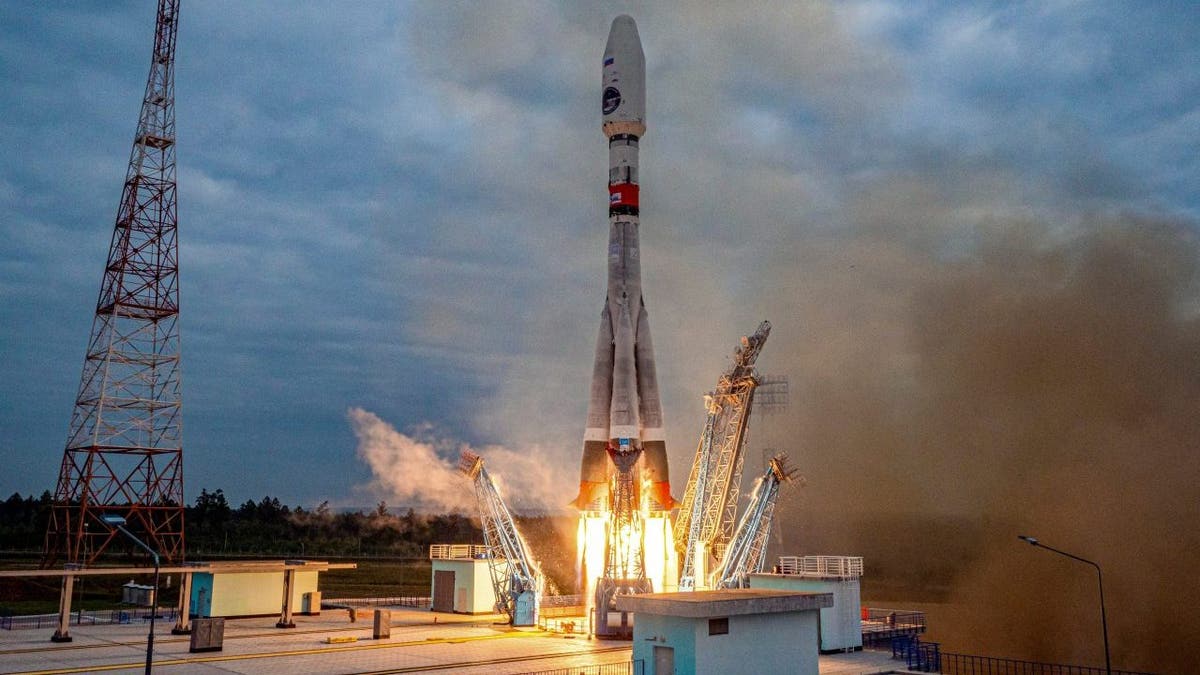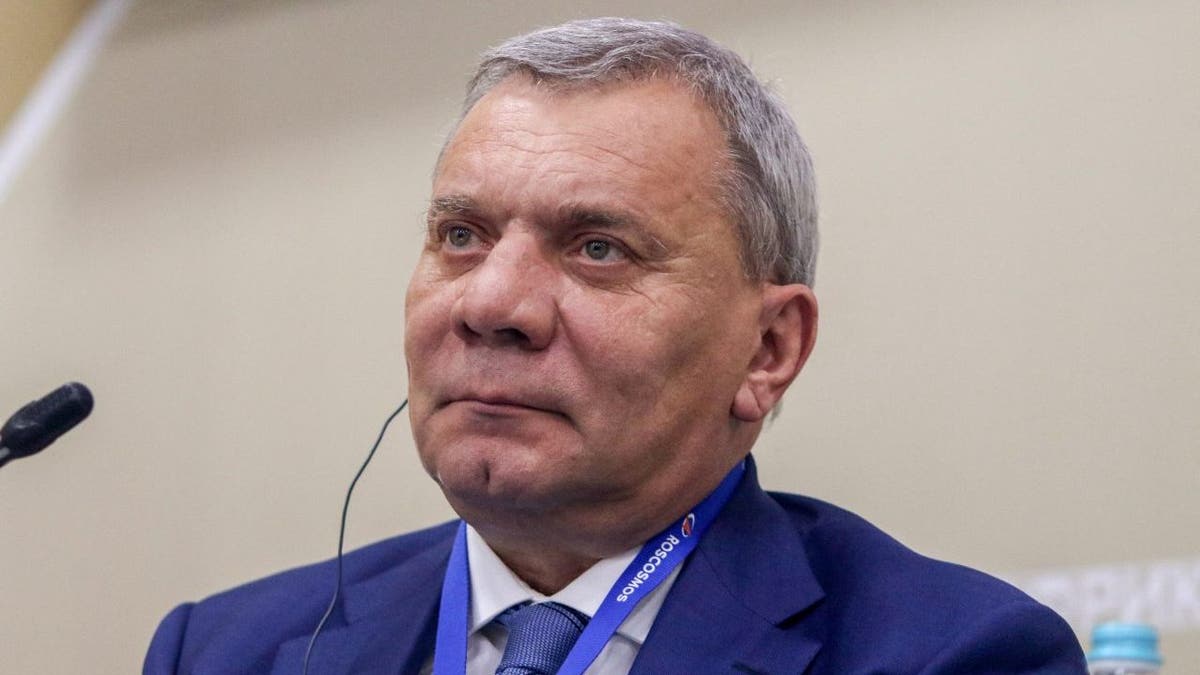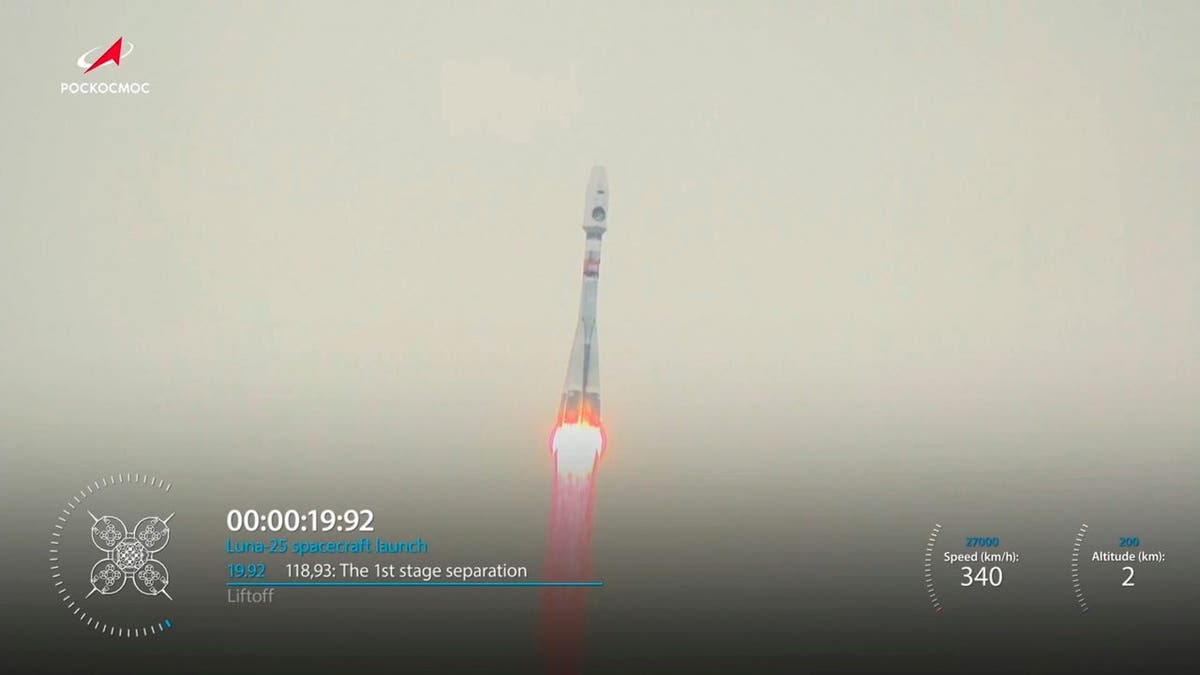Fox News Flash top headlines for August 11
Fox News Flash top headlines are here. Check out what's clicking on Foxnews.com.
Russia launched a moon-bound space probe on Friday — the country's first in almost 50 years.
The Luna-25 lander — launched from Vostochny Cosmodrome in the early hours of Moscow local time — is the first lunar lander launched by Russia since 1976.
"For the first time in history, the lunar landing will take place on the lunar south pole. Until now, everyone has been landing in the equatorial zone," said Alexander Blokhin, senior official at Roscosmos.
MASS EVACUATION ORDERED AS RUSSIAN FORCES INTENSIFY OFFENSIVE IN UKRAINE

In this image made from video released by Roscosmos State Space Corporation, the Soyuz-2.1b rocket with the moon lander Luna-25 automatic station takes off from a launch pad at the Vostochny Cosmodrome in the Russian Far East on Friday, Aug. 11, 2023. The launch of the Luna-25 craft to the moon will be Russia's first since 1976 when it was part of the Soviet Union. The Russian lunar lander is expected to reach the moon on Aug. 23, about the same day as an Indian craft which was launched on July 14. (Roscosmos State Space Corporation via AP)
Roscosmos is a state-operated space travel outfit based in Russia. It was formed in 1992 as the Russian Federal Space Agency after the collapse of the Soviet Union.
It is headed by Yuriy Borisov, who previously served as a deputy prime minister under Russian President Vladimir Putin.
"Study of the moon is not the goal," said Russian space analyst Vitaly Egorov. "The goal is political competition between two superpowers — China and the USA — and a number of other countries which also want to claim the title of space superpower."
The probe is scheduled to enter the moon's orbit in approximately five days. Roscosmos then expects the probe to make a landing on the lunar surface around Aug. 21.
Russia, then the USSR, was the first country to put a man in space when Yuri Gagarin circled the Earth in 1961 via the Vostok 1.
RUSSIA LAUNCHES ROCKET WITH MILITARY SATELLITE, UN LOOKS TO BLOCK SPACE ARMS RACE

Yuriy Borisov, director general of State Space Corporation Roscosmos, attends a session on Russia - Africa: Space Technologies to Accelerate Economic Development and Improve the Living Standards of the Population in the framework of the Second Summit Economic and Humanitarian Forum 2023 in Saint Petersburg, Russia. (Maksim Konstantinov/SOPA Images/LightRocket via Getty Images)
This will be the first attempt by post-Soviet Russia to place a spacecraft on the moon, and its success or failure will set the tone for future space missions.
Russia and China have increasingly invested in and enhanced their space programs in recent years, creating new threats to U.S. security in outer space.
According to officials with the Defense Intelligence Agency (DIA), the two countries have been reorganizing and reforming their space forces.
Last year, Russia and China signed a deal to develop a joint lunar station.

In this photo taken from video and released by Roscosmos State Space Corporation, the Soyuz-2.1b rocket with the moon lander Luna-25 automatic station takes off from a launch pad at the Vostochny Cosmodrome in the Russia's Far East, on Friday, Aug. 11, 2023. The launch of the Luna-25 craft to the moon will be Russia's first since 1976 when it was part of the Soviet Union. The Russian lunar lander is expected to reach the moon on Aug. 23, about the same day as an Indian craft which was launched on July 14. (Roscosmos State Space Corporation via AP)
CLICK HERE TO GET THE FOX NEWS APP
Plans for the moon base, dubbed the International Lunar Research Station, were first revealed in June 2021 during the Global Space Exploration Conference in St. Petersburg by Roscosmos and the China National Space Administration.
According to the DIA report, Russia publicly supports a space arms control agreement – but its military doctrine states otherwise. The DIA’s assessment is that "Russia views space as a warfighting domain and that achieving supremacy in space will be a decisive factor in winning future conflicts."
Fox News Digital's Amy Munneke and Caitlin McFall contributed to this report.

